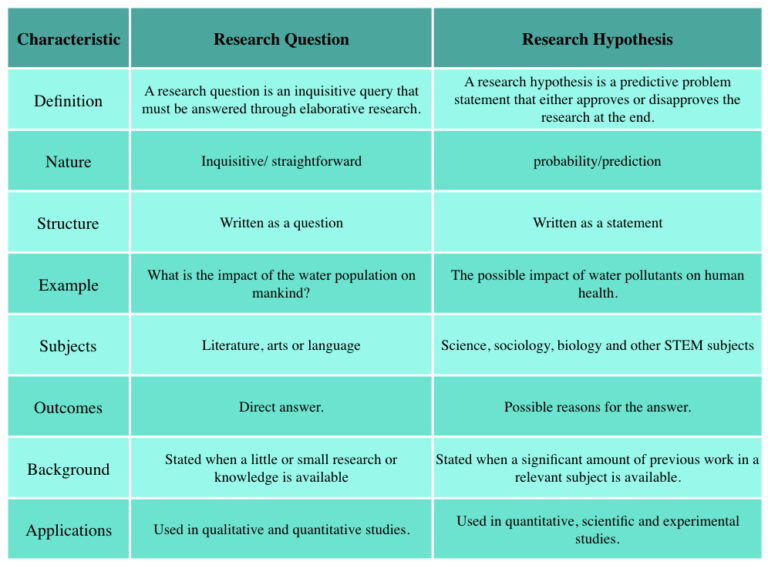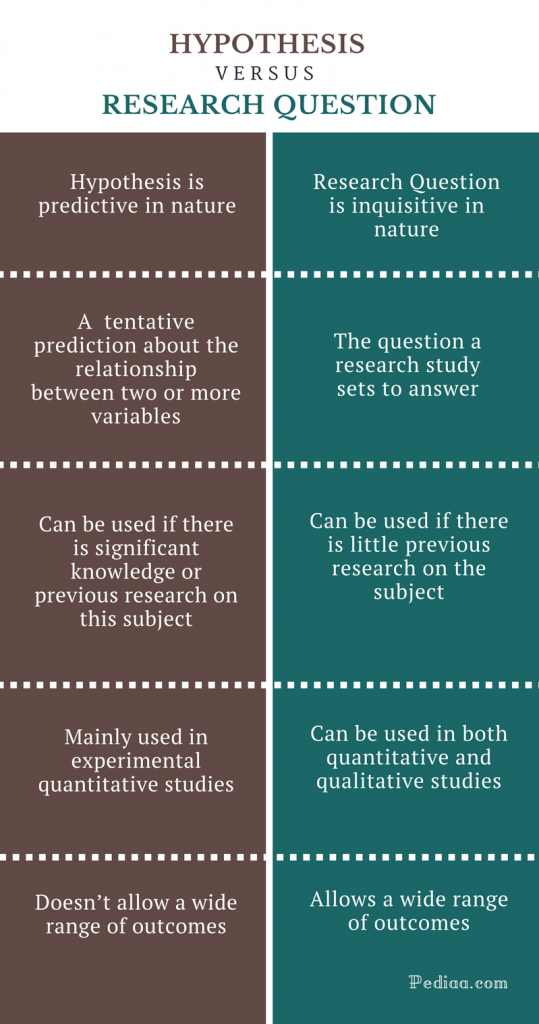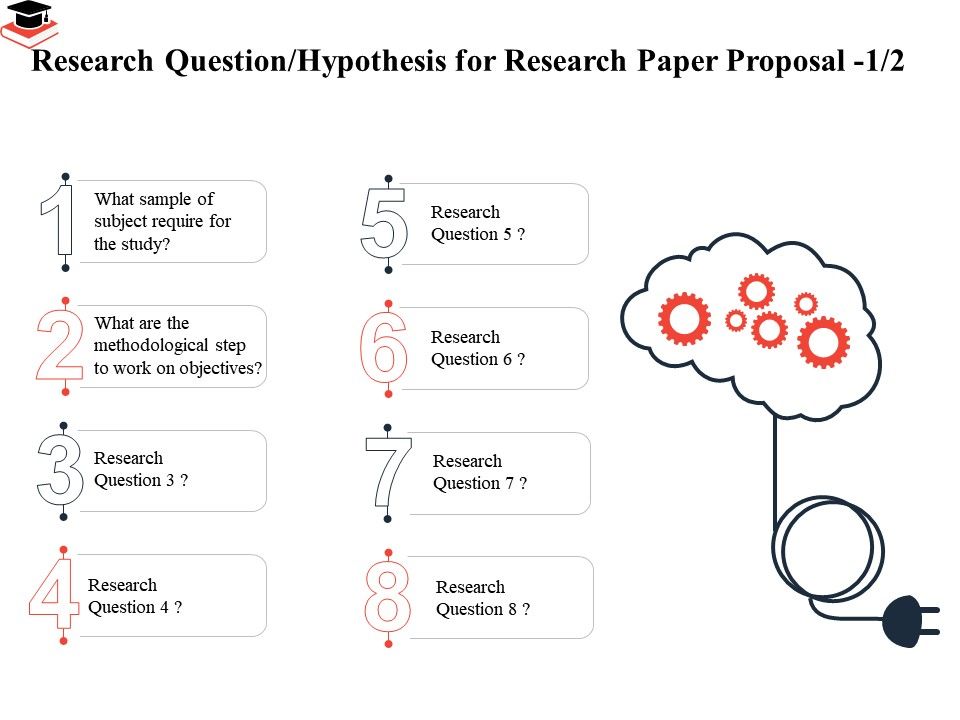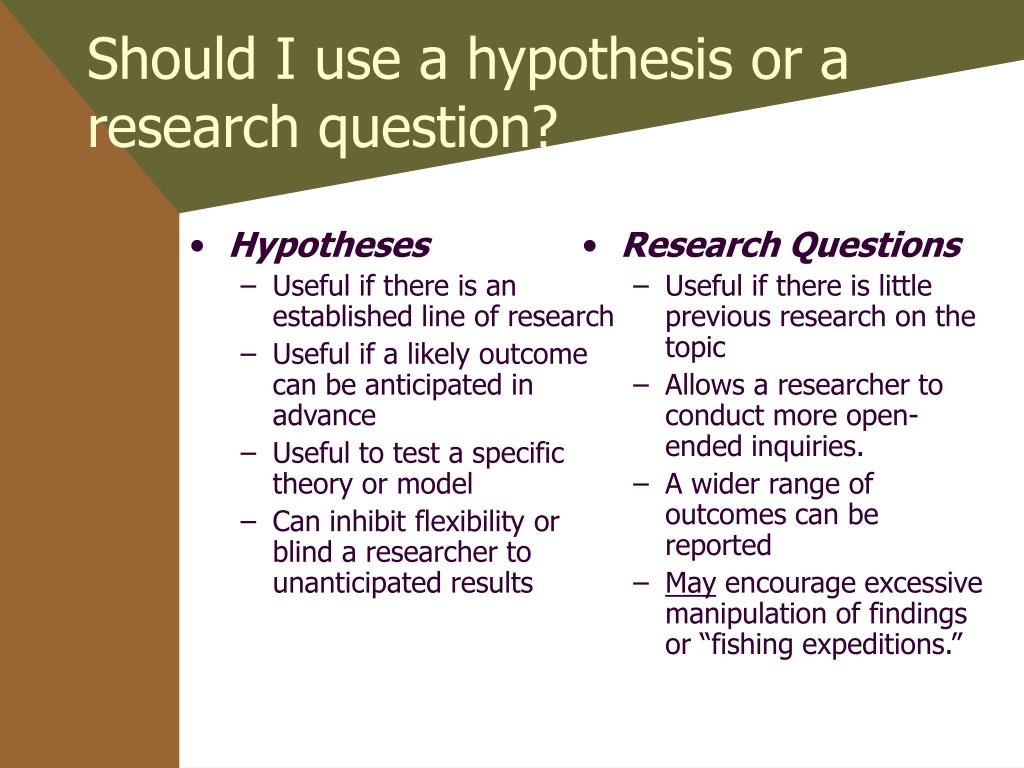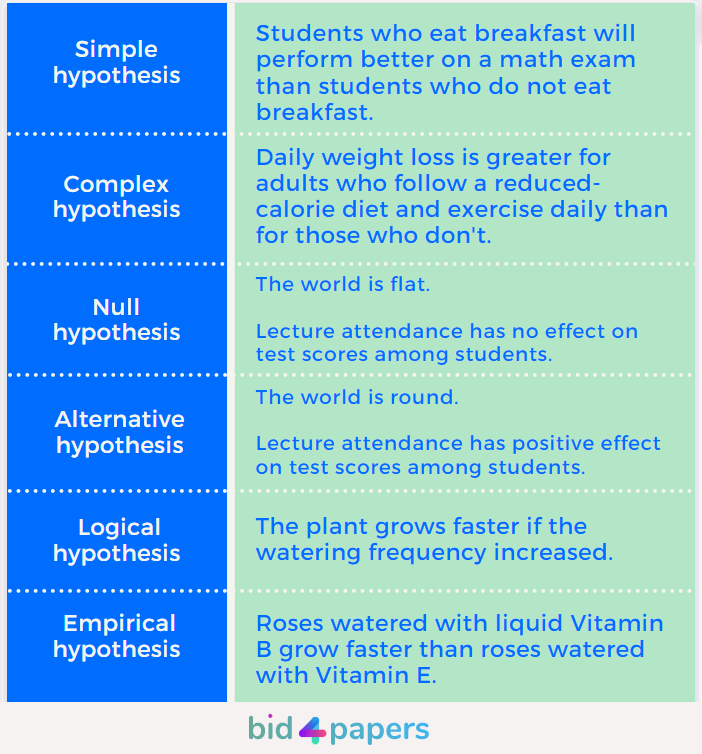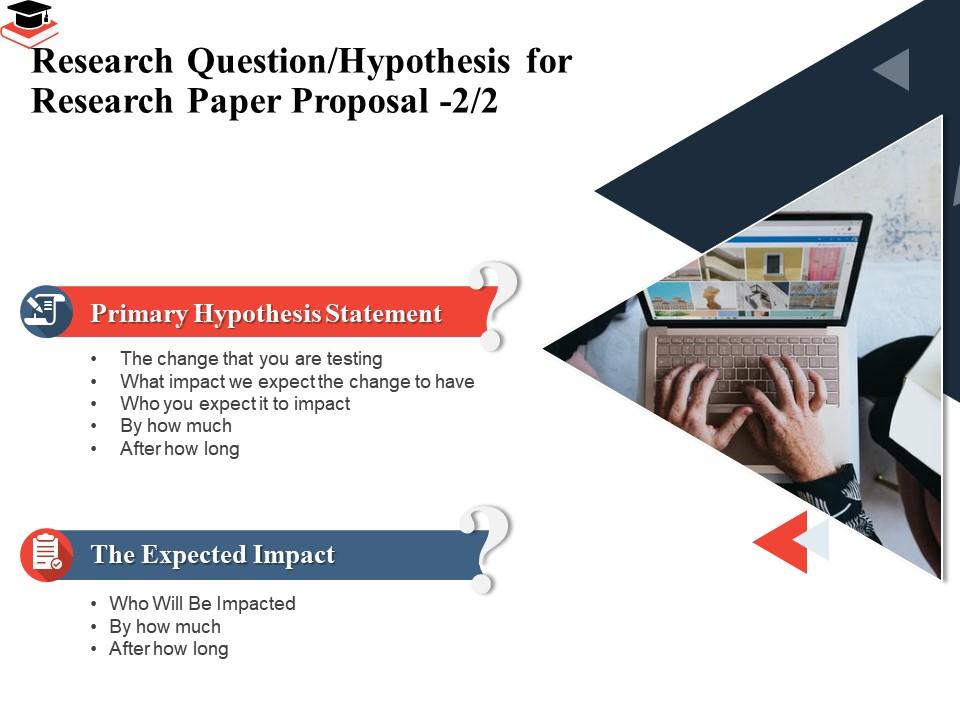Hypothesis And Research Question - In a qualitative study, inquirers state research questions, not objectives (i.e., specific goals for the research) or hypotheses (i.e., predictions. The consensus among researchers is that, like research questions, a hypothesis should not only be clear and easy to understand. Hypothesis and research question are both essential components of the scientific research process, but they serve different purposes. A hypothesis is used when you have a specific prediction about a relationship between variables and want to test it directly through. Without clarity in a research question and hypothesis, researchers run the risk of conducting vague experiments that do not. In this article, we discuss important considerations in the development of a research question and hypothesis and in defining. Simply put, a research hypothesis is a prediction or educated guess about the relationship between the variables that you.
The consensus among researchers is that, like research questions, a hypothesis should not only be clear and easy to understand. Without clarity in a research question and hypothesis, researchers run the risk of conducting vague experiments that do not. Hypothesis and research question are both essential components of the scientific research process, but they serve different purposes. In this article, we discuss important considerations in the development of a research question and hypothesis and in defining. A hypothesis is used when you have a specific prediction about a relationship between variables and want to test it directly through. In a qualitative study, inquirers state research questions, not objectives (i.e., specific goals for the research) or hypotheses (i.e., predictions. Simply put, a research hypothesis is a prediction or educated guess about the relationship between the variables that you.
A hypothesis is used when you have a specific prediction about a relationship between variables and want to test it directly through. In a qualitative study, inquirers state research questions, not objectives (i.e., specific goals for the research) or hypotheses (i.e., predictions. In this article, we discuss important considerations in the development of a research question and hypothesis and in defining. The consensus among researchers is that, like research questions, a hypothesis should not only be clear and easy to understand. Without clarity in a research question and hypothesis, researchers run the risk of conducting vague experiments that do not. Simply put, a research hypothesis is a prediction or educated guess about the relationship between the variables that you. Hypothesis and research question are both essential components of the scientific research process, but they serve different purposes.
10 Significant Differences Between Research Question vs Research
In this article, we discuss important considerations in the development of a research question and hypothesis and in defining. Without clarity in a research question and hypothesis, researchers run the risk of conducting vague experiments that do not. Hypothesis and research question are both essential components of the scientific research process, but they serve different purposes. The consensus among researchers.
Diferencia entre hipótesis y pregunta de investigación Significado
Without clarity in a research question and hypothesis, researchers run the risk of conducting vague experiments that do not. In a qualitative study, inquirers state research questions, not objectives (i.e., specific goals for the research) or hypotheses (i.e., predictions. The consensus among researchers is that, like research questions, a hypothesis should not only be clear and easy to understand. Simply.
Hypothesis In Research
Hypothesis and research question are both essential components of the scientific research process, but they serve different purposes. A hypothesis is used when you have a specific prediction about a relationship between variables and want to test it directly through. The consensus among researchers is that, like research questions, a hypothesis should not only be clear and easy to understand..
Hypothesis In Research
In a qualitative study, inquirers state research questions, not objectives (i.e., specific goals for the research) or hypotheses (i.e., predictions. Simply put, a research hypothesis is a prediction or educated guess about the relationship between the variables that you. Without clarity in a research question and hypothesis, researchers run the risk of conducting vague experiments that do not. In this.
How to Write a Hypothesis The Ultimate Guide with Examples
Simply put, a research hypothesis is a prediction or educated guess about the relationship between the variables that you. The consensus among researchers is that, like research questions, a hypothesis should not only be clear and easy to understand. Hypothesis and research question are both essential components of the scientific research process, but they serve different purposes. Without clarity in.
Research Question Hypothesis For Research Paper Proposal Expected
In a qualitative study, inquirers state research questions, not objectives (i.e., specific goals for the research) or hypotheses (i.e., predictions. Without clarity in a research question and hypothesis, researchers run the risk of conducting vague experiments that do not. In this article, we discuss important considerations in the development of a research question and hypothesis and in defining. Simply put,.
Hypothesis vs Research Questions Difference between Research Questions
The consensus among researchers is that, like research questions, a hypothesis should not only be clear and easy to understand. Without clarity in a research question and hypothesis, researchers run the risk of conducting vague experiments that do not. Hypothesis and research question are both essential components of the scientific research process, but they serve different purposes. A hypothesis is.
Types Of Research Hypothesis
The consensus among researchers is that, like research questions, a hypothesis should not only be clear and easy to understand. A hypothesis is used when you have a specific prediction about a relationship between variables and want to test it directly through. Without clarity in a research question and hypothesis, researchers run the risk of conducting vague experiments that do.
Difference between Research question and hypothesis research
In a qualitative study, inquirers state research questions, not objectives (i.e., specific goals for the research) or hypotheses (i.e., predictions. Hypothesis and research question are both essential components of the scientific research process, but they serve different purposes. The consensus among researchers is that, like research questions, a hypothesis should not only be clear and easy to understand. Simply put,.
Research Problem, Questions, & Hypotheses lecture notes Research
Without clarity in a research question and hypothesis, researchers run the risk of conducting vague experiments that do not. A hypothesis is used when you have a specific prediction about a relationship between variables and want to test it directly through. The consensus among researchers is that, like research questions, a hypothesis should not only be clear and easy to.
The Consensus Among Researchers Is That, Like Research Questions, A Hypothesis Should Not Only Be Clear And Easy To Understand.
Simply put, a research hypothesis is a prediction or educated guess about the relationship between the variables that you. Hypothesis and research question are both essential components of the scientific research process, but they serve different purposes. In a qualitative study, inquirers state research questions, not objectives (i.e., specific goals for the research) or hypotheses (i.e., predictions. Without clarity in a research question and hypothesis, researchers run the risk of conducting vague experiments that do not.
A Hypothesis Is Used When You Have A Specific Prediction About A Relationship Between Variables And Want To Test It Directly Through.
In this article, we discuss important considerations in the development of a research question and hypothesis and in defining.
